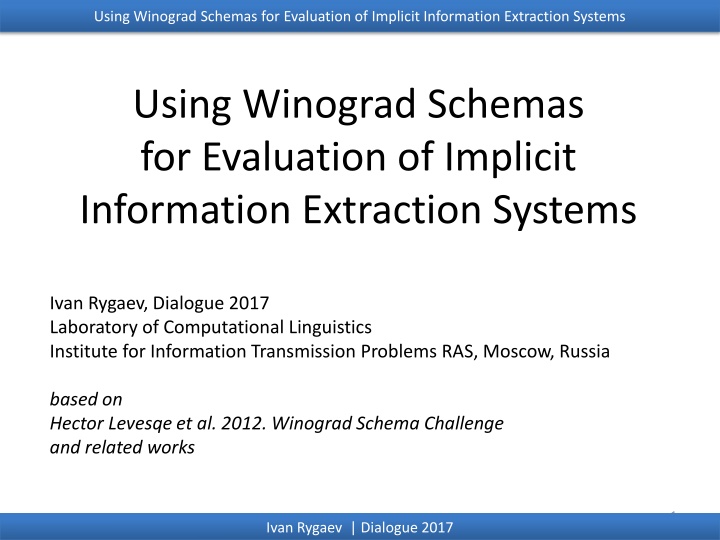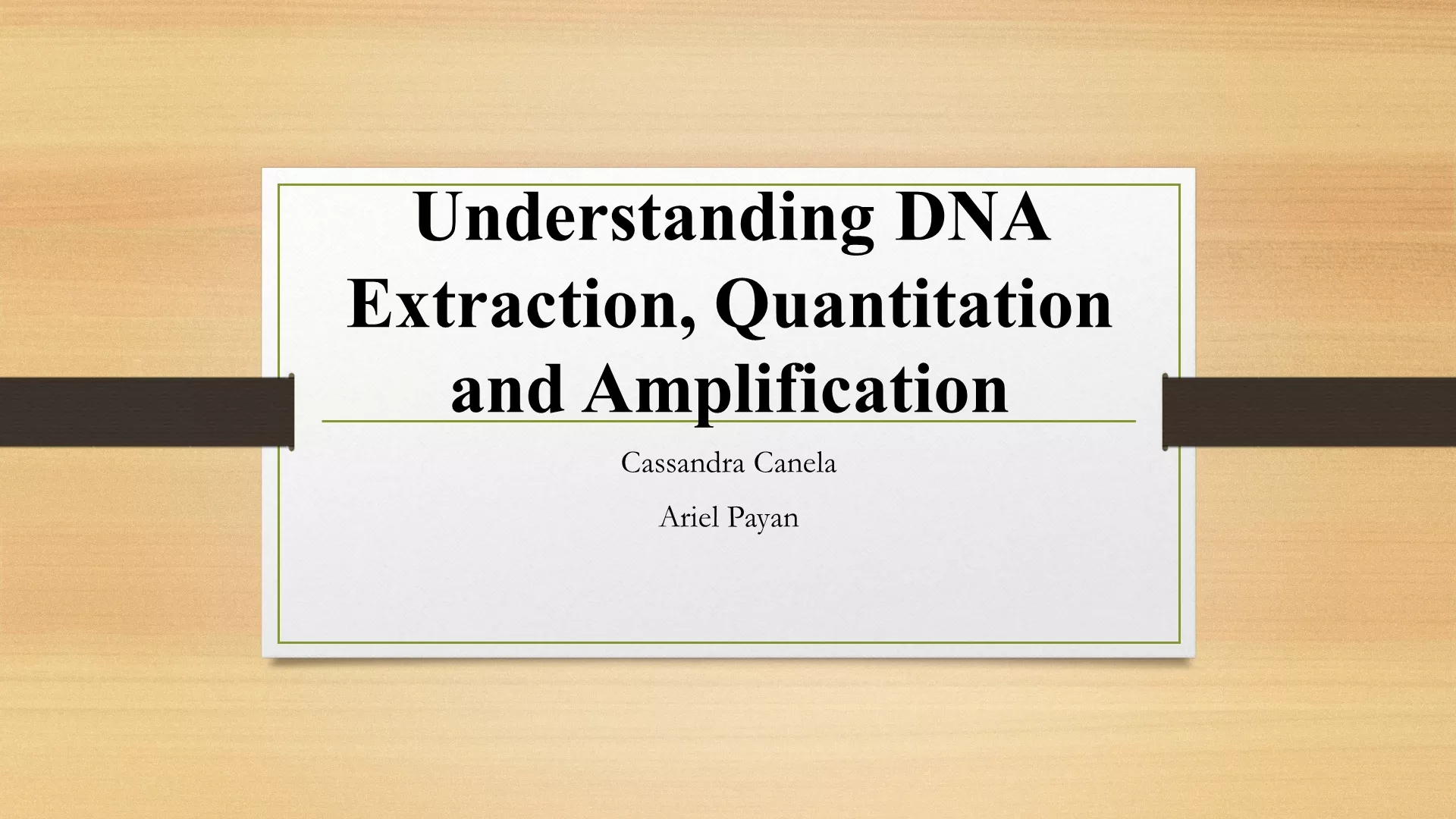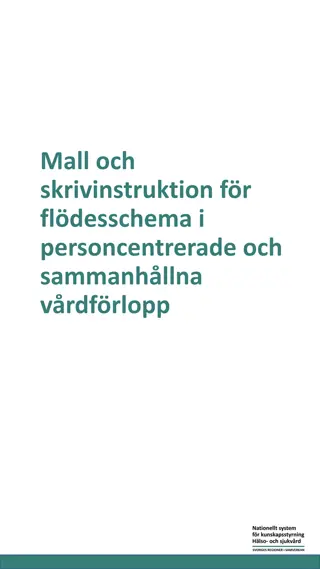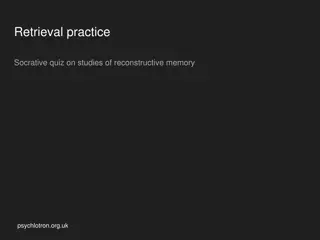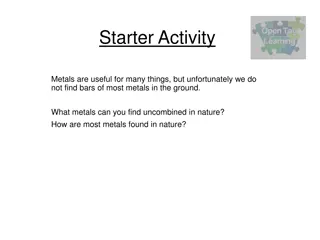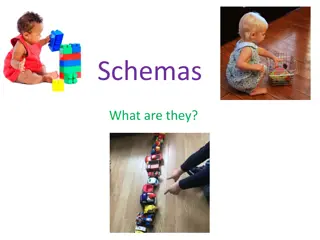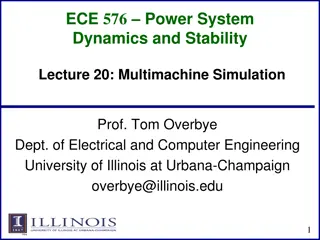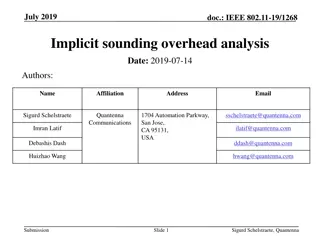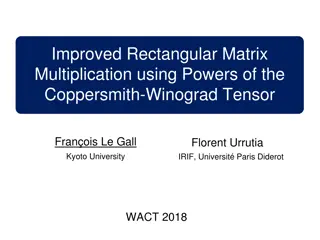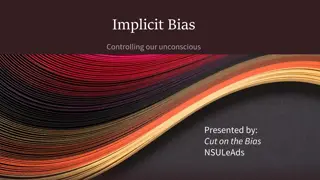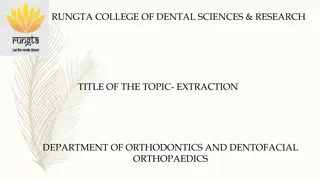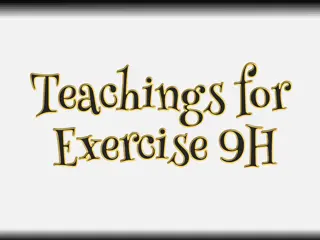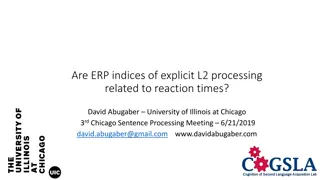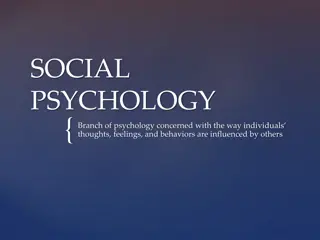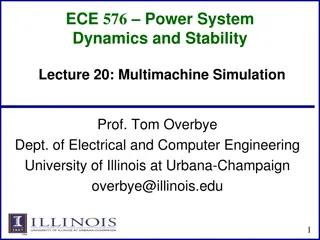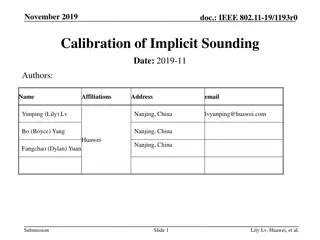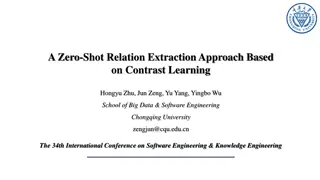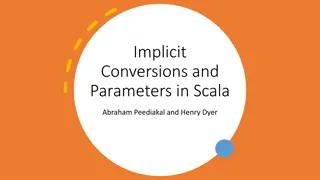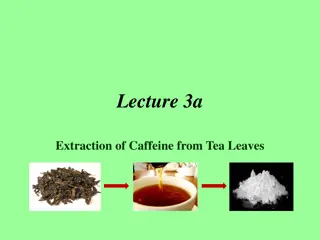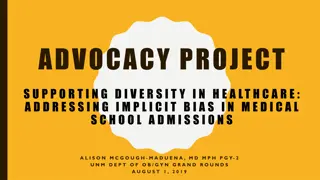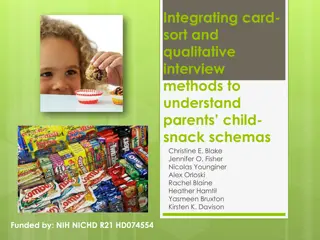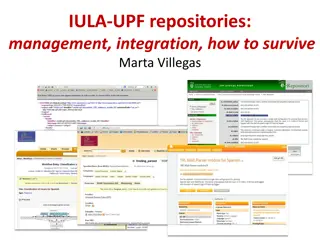Evaluation of Implicit Information Extraction Using Winograd Schemas
Winograd Schemas are utilized for evaluating implicit information extraction systems. Ivan Rygaev discusses the challenges and significance of this method compared to the Turing Test, emphasizing the need for world knowledge for successful interpretation. The schemas propose unique anaphora resolution problems that linguistic features and statistics cannot solve. Key figures in this field include Hector Levesque, Terry Winograd, and others. Criticism of the Turing Test is also explored, questioning whether conversation is the most suitable evaluation method for intelligent machines.
Download Presentation

Please find below an Image/Link to download the presentation.
The content on the website is provided AS IS for your information and personal use only. It may not be sold, licensed, or shared on other websites without obtaining consent from the author.If you encounter any issues during the download, it is possible that the publisher has removed the file from their server.
You are allowed to download the files provided on this website for personal or commercial use, subject to the condition that they are used lawfully. All files are the property of their respective owners.
The content on the website is provided AS IS for your information and personal use only. It may not be sold, licensed, or shared on other websites without obtaining consent from the author.
E N D
Presentation Transcript
Using Winograd Schemas for Evaluation of Implicit Information Extraction Systems Using Winograd Schemas for Evaluation of Implicit Information Extraction Systems Ivan Rygaev, Dialogue 2017 Laboratory of Computational Linguistics Institute for Information Transmission Problems RAS, Moscow, Russia based on Hector Levesqe et al. 2012. Winograd Schema Challenge and related works 1 Ivan Rygaev | Dialogue 2017
Using Winograd Schemas for Evaluation of Implicit Information Extraction Systems Winograd Schema Challenge A test for computer intelligence More convincing than the Turing Test that machines can think Based on analysis of the short text of 1-3 sentences and a question on them Special type of anaphora resolution problem Linguistic features, collocation statistics, selectional restrictions does not help Some kind of world knowledge is required Ivan Rygaev | Dialogue 2017
Using Winograd Schemas for Evaluation of Implicit Information Extraction Systems Key People Hector Levesque Ernest Davis Terry Winograd Leora Morgenstern Ivan Rygaev | Dialogue 2017
Using Winograd Schemas for Evaluation of Implicit Information Extraction Systems Turing Test Criticism Turing Test was formally passed by a chat-bot Eugene Goostman in 2014 But does the chat-bot think? Is conversation the right way of evaluation? Subjective Encourage verbal acrobatics and trickery Turing Test requires deception Must fool an interrogator that it is a person Do we need this from an intelligent machine? For which purposes? Ivan Rygaev | Dialogue 2017
Using Winograd Schemas for Evaluation of Implicit Information Extraction Systems Winograd Schemas Proposed by Hector Levesque in 2011 The trophy doesn t fit in the brown suitcase because it s too big. What is too big? the trophy the suitcase Joan made sure to thank Susan for all the help she had given. Who had given the help? Joan Susan Terry Winograd provided the first example in 1970 Ivan Rygaev | Dialogue 2017
Using Winograd Schemas for Evaluation of Implicit Information Extraction Systems Winograd Schema Structure Anaphora resolution problem There are two potential antecedents in the sentence Linguistic features, collocation statistics and selectional restrictions does not help much Changing a special word in the sentence reverts the correct answer (big -> small) The trophy doesn t fit in the brown suitcase because it s too small. What is too small? the trophy the suitcase Ivan Rygaev | Dialogue 2017
Using Winograd Schemas for Evaluation of Implicit Information Extraction Systems Commonsense Knowledge People are good on Windograd Schemas Tests show 91-92% correct answers. What is required to get the right answer? Understanding of the verb fit if A fits into B then A must be smaller than B. Understanding of the connective because Changing it to in spite of also reverts the answer. Implicit information must be extracted from the text to pass the test Ivan Rygaev | Dialogue 2017
Using Winograd Schemas for Evaluation of Implicit Information Extraction Systems WSs Preparation The wrong answer need not be logically inconsistent: Tom threw his bag down to Ray after he reached the top of the stairs. Who reached the top of the stairs? Tom Ray Alternate special word need not be the opposite: The man couldn't lift his son because he was so weak/heavy. Who was weak/heavy? the man the son Ivan Rygaev | Dialogue 2017
Using Winograd Schemas for Evaluation of Implicit Information Extraction Systems WSs Preparation WS must not be too obvious : The women stopped taking the pills because they were pregnant/cancerogenic. Which individuals were pregnant/cancerogenic? the women the pills Selectional restrictions help: Only women can be pregnant, not pills Only pills can be cancerogenic, not women The first sentence can be totally ignored Ivan Rygaev | Dialogue 2017
Using Winograd Schemas for Evaluation of Implicit Information Extraction Systems WSs Preparation WS must not be ambiguous for humans (both ways) Frank was jealous when Bill said that he was the winner of the competition. Who was the winner? Frank Bill Frank was pleased when Bill said that he was the winner of the competition. Who was the winner? Frank Bill It is not unreasonable that Bill s victory pleased Frank Ivan Rygaev | Dialogue 2017
Using Winograd Schemas for Evaluation of Implicit Information Extraction Systems Flexibility WSs of different difficulty allow incremental progress The councilmen refused to give the demonstrators a permit because they feared/advocated violence. Who feared/advocated violence? the councilmen the demonstrators WSs for different domains: spatial vs. social relations WSs for specific features: paraphrasing, sentiment analysis Ivan Rygaev | Dialogue 2017
Using Winograd Schemas for Evaluation of Implicit Information Extraction Systems Approaches The test is agnostic to internal realization techniques: Rule-based or Statistical machine learning Both are welcome A deep learning solution even showed better results in the first competition in 2016 But it was taught on semantic resources rather than just texts Ivan Rygaev | Dialogue 2017
Using Winograd Schemas for Evaluation of Implicit Information Extraction Systems Competition The first competition was held in July 2016 at IJCAI conference in New York It was organized in two rounds: 1. Sentences from real texts (children's literature) rather than constructed ones. They exhibited all the properties of WS but did not have an alternative variant. 2. Actual constructed WSs with an alternative variant Motivation for two rounds: Not to reveal WSs to contestants who are not ready yet Increase relevance of the test by using real examples Ivan Rygaev | Dialogue 2017
Using Winograd Schemas for Evaluation of Implicit Information Extraction Systems Competition There were 60 questions in the first round and 60 in the second one. To proceed to the second round a contestant had to score at least 90% correct in the first one. None of the solutions achieved that score The second round was not held The big prize was offered to the team who would achieve at least 90% in both rounds Three smaller prizes were offered to the top programs achieved at least 65% in the first round Ivan Rygaev | Dialogue 2017
Using Winograd Schemas for Evaluation of Implicit Information Extraction Systems Competition Results Six solutions of four teams where presented: Random answering could yield 45% Ivan Rygaev | Dialogue 2017
Using Winograd Schemas for Evaluation of Implicit Information Extraction Systems Results Assessment None of the solutions got over the 65% threshold to receive even the smaller prize Four of the six programs showed scores around the chance level or even worse The best solution used deep learning algorithms. It was taught on ConceptNet, WordNet and CauseCom resources CauseCom is a set of cause-effect pairs automatically collected from large text corpora The next test is planned for AAAI-2018 (Feb) Ivan Rygaev | Dialogue 2017
Using Winograd Schemas for Evaluation of Implicit Information Extraction Systems Conclusions Winograd Schema Challenge is a good test for text understanding and implicit knowledge extraction It allows incremental progress and can be either broad or specific to a certain domain or extracting feature The proposal is to organize Winograd Schema Challenge in Russian at one of the subsequent Dialogue conferences. Ivan Rygaev | Dialogue 2017
Using Winograd Schemas for Evaluation of Implicit Information Extraction Systems Thank you! Ivan Rygaev | Dialogue 2017
